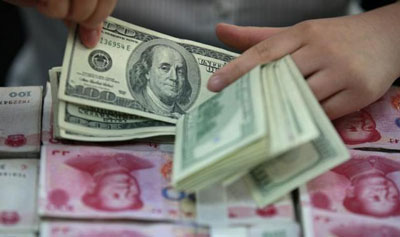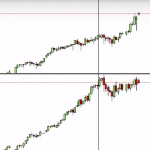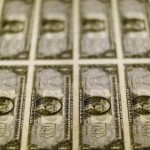China’s yuan to face pressure if dollar rises sharply: c.bank adviser

China’s yuan will come under renewed downward pressure if the U.S. dollar rises significantly in coming months, a policy adviser to the People’s Bank of China said on Friday.
Huang Yiping, a professor at Peking University and a member of the central bank’s monetary policy committee, also said the central bank was managing the yuan CNY=CFXS against a basket of currencies including the dollar, not again the dollar alone, reaffirming the official stance.
“If the dollar is going to rise significantly further in the coming months, then I think pressure on the renminbi will continue,” Huang told an annual forum in Boao, on the southern Chinese island of Hainan.
Recent official data showed a moderation in capital outflows from China as the yuan stabilized, partly due to the dollar’s broad retreat as expectations cool on the pace of U.S. interest rate rises this year.
Huang said the government has more room to maneuver with its fiscal policy than with monetary policy, and said it could be used to promote structural reforms.
Top leaders have pledged to make monetary policy more flexible this year even as it leans more on increased fiscal spending and tax cuts to support economic growth and cushion the pain from structural reforms.
The PBOC has cut interest rates six times since November 2014 and has also repeatedly reduced the amount of cash that banks must hold as reserves to encourage more lending. The last policy easing was on Feb. 29 when the central bank lowered the reserve requirement ratio.
Huang suggested that monetary policy easing may have played a role in pushing up property prices, as the government struggles to contain risks of overheating in some big cities.
“We have to be very cautious when we look at asset markets. If asset prices climb, they will come down one day,” he said.
Municipal authorities in Shanghai tightened mortgage down payment requirements for second home purchases on Friday, in a move to cool an overheating property market and reduce fears of a bubble.
China’s rising non-performing loans in the banking sector are worrisome as the actual levels may be higher than the official figures suggest, Huang said.
China’s lenders are facing increasing bad loans and credit risks as a government campaign to reduce capacity weighs on the manufacturing sector and as broader economic growth slows.
Bad loans at China’s commercial banks swelled to a decade-high 1.27 trillion yuan ($194.8 billion) in 2015 as growth in the world’s second-biggest economy cooled to the slowest in 25 years.
Source: Reuters




























